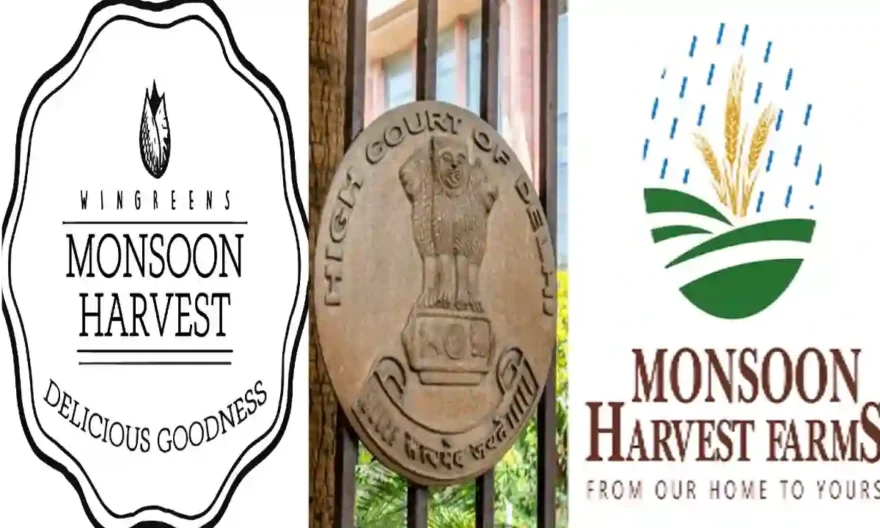
The Delhi High Court recently barred a food and beverages firm, Green Light Foods Private Limited from using the trademarks ‘Monsoon Harvest,’ ‘Wingreens Monsoon Harvest,’ or any other trademark similar to ‘Monsoon Harvest Farms,’ after the latter filed suit for infringement.
The order was passed by Justice Navin Chawla, who noted that the proprietors of the mark ‘Monsoon Harvest Farms’ had been former user and prima facie, it was visually and phonetically similar to ‘Monsoon Harvest’.
“In light of the foregoing, the defendant is barred from using the mark ‘MONSOON HARVEST’ and/or the logo and/or for the new mark and/or any other mark or name identical and/or deceptively and confusingly similar to the plaintiff’s earlier and registered trademarks MONSOON HARVEST FARMS either as a trade mark or part of a trade mark, a trade name or corporate name or as part of a trade or corporate name, part of a domain name or in any other manner whatsoever, so as to infringe the registered trademarks of the plaintiff or pass off the same, till the pendency of the present suit,” the Court ordered.
Justice Chawla was hearing a case filed by Preetendra Singh Aulakh.
Since the 1970s, the plaintiff claims, he and his family have been selling edible oils, raw and unprocessed agricultural and horticultural products, as well as fresh fruits and vegetables. He stated that in November 2006, his company began utilising the mark ‘Monsoon Harvest Farms’ and the device mark with the same name.
The defendant, on the other hand, stated that since 2015, it has been producing millet-based nutrition bars, cookies, muesli, granola, morning cereals, nut bars, granola bars, energy bars, snack bars, and confectionary under the ‘Monsoon Harvest’ marks.
They also claimed that the company has now adopted a new mark, ‘Wingreens Monsoon Harvest,’ which creates an even greater distinction between the plaintiff’s and defendant’s marks, and so there is no question of infringement or passing off.
After reviewing the matter, the bench held that the simple inclusion of the word ‘Wingreens’ is insufficient to distinguish the two under the test of an unwary purchaser of an average intelligence with imperfect recollection.
“The plaintiff’s and defendant’s goods are similar and allied in that they are food items sold over the counter, and the attempt to distinguish them on the basis of one being processed and the other being unprocessed appears to be artificial,” the Court ruled.
As a result, it found that the plaintiff had shown a prima facie case in their favour and passed an order of interim injunction.




